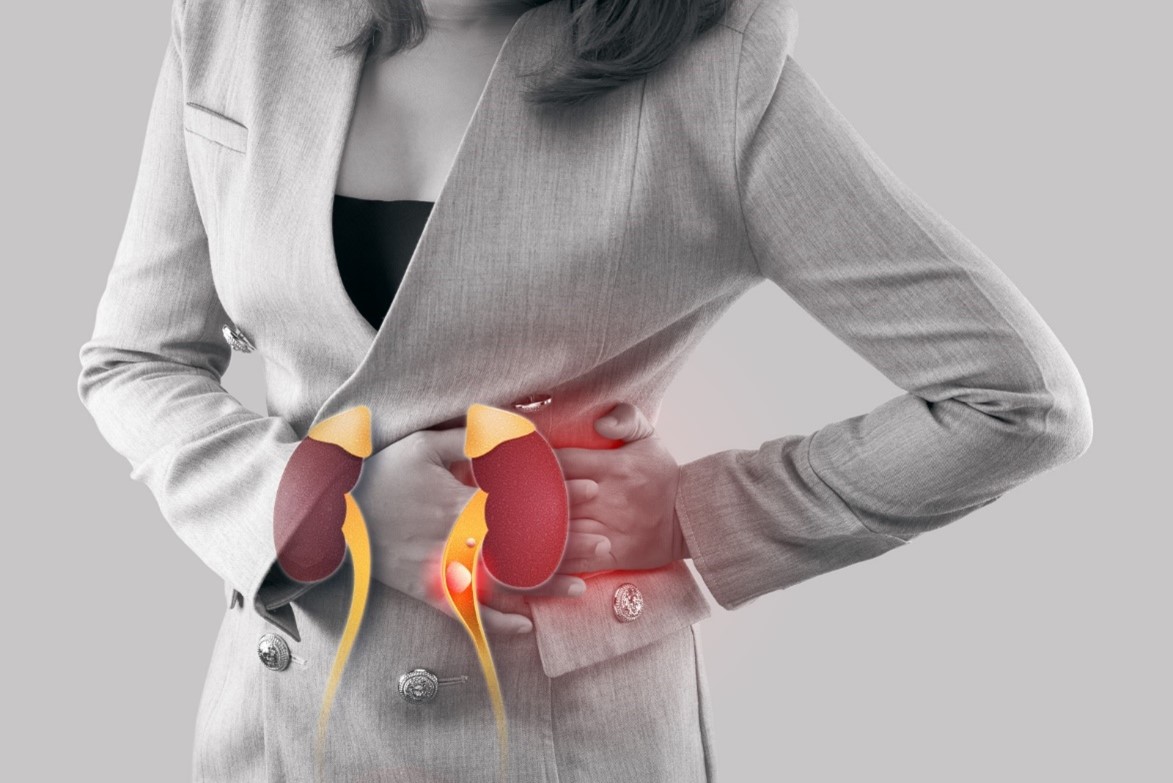Kidney stones are solid deposits of minerals and salts that form inside the kidneys or urinary tract. They vary in size and can cause severe pain and discomfort when passing through the urinary system.
Causes of Kidney Stones
Kidney stones develop when substances like calcium, oxalate, and uric acid in the urine become concentrated and crystallize. Factors contributing to their formation include:
- Dehydration: Insufficient water intake leads to concentrated urine, promoting stone formation.
- Diet: High consumption of oxalate-rich foods (e.g., spinach, nuts), sodium, or animal proteins increases the risk.
- Medical Conditions: Certain health issues, like urinary tract infections or metabolic disorders, can affect urine composition and promote stone formation.
Symptoms of Kidney Stones
Signs and symptoms of kidney stones may include:
- Severe Pain: Usually felt in the side or lower back, which can radiate to the abdomen and groin as the stone moves.
- Blood in Urine: Urine may appear pink, red, or brown due to blood.
- Nausea and Vomiting: Often accompanied by pain, especially when the stone causes a blockage.
- Changes in Urination: Frequent urges to urinate, discomfort during urination, or changes in urine colour and odour.
Diagnosis
If kidney stones are suspected, healthcare providers may recommend:
- Imaging Tests: Such as X-rays, CT scans, or ultrasound to visualize and locate the stones.
- Urinalysis: To analyze urine for blood, crystals, and signs of infection.
Treatment Options
Treatment depends on the size, location, and severity of symptoms:
- Pain Management: Using over-the-counter or prescription pain relievers to alleviate discomfort.
- Hydration: Drinking plenty of water to help flush out smaller stones and prevent new ones from forming.
- Medications: Such as alpha-blockers to relax muscles in the ureter, facilitating stone passage.
- Medical Procedures: For larger stones or those causing severe symptoms, procedures like shock wave therapy (lithotripsy), ureteroscopy, or surgical removal may be necessary.
Prevention
To reduce the risk of kidney stones recurring:
- Hydration: Maintain adequate fluid intake daily to keep urine dilute.
- Dietary Adjustments: Limit oxalate-rich foods, sodium, and animal proteins under medical guidance.
- Regular Monitoring: Follow-up with healthcare providers to monitor kidney function and urine composition.
Kidney stones can be painful and disruptive, but early diagnosis, appropriate treatment, and preventive measures can effectively manage this condition. If you suspect kidney stones or experience symptoms, seek medical attention promptly.


